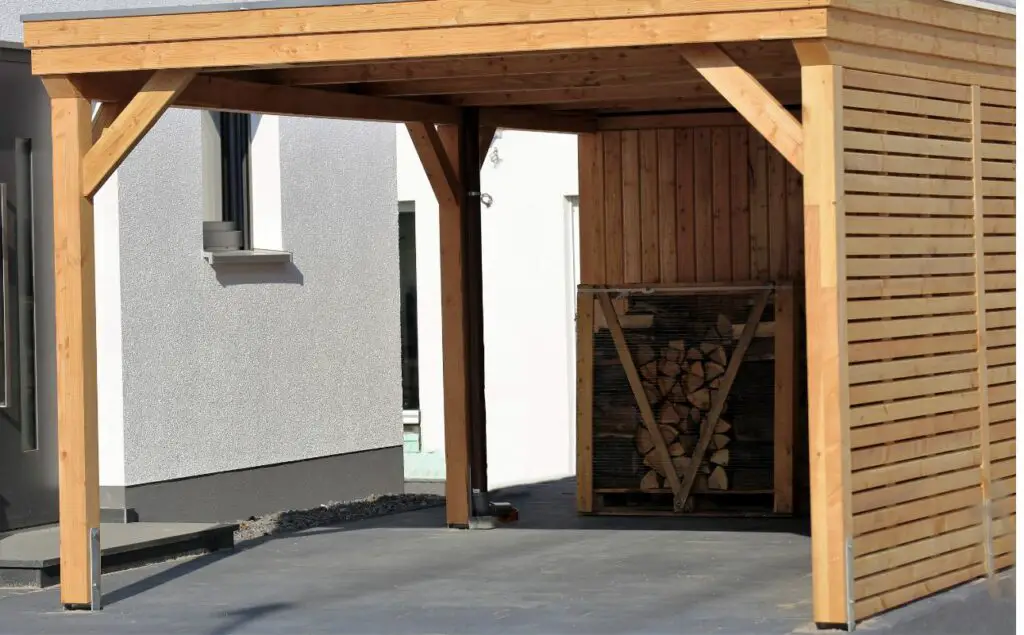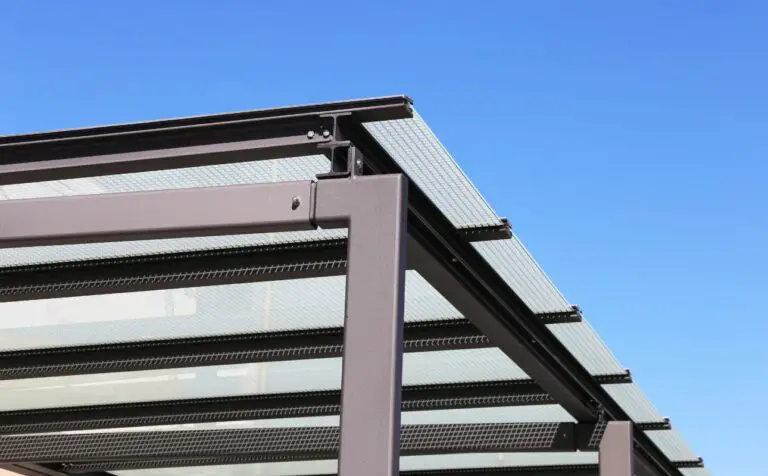Footings are important for making buildings stable, strong, and long-lasting, but whether or not they are needed for a carport depends on a number of things.
Understanding the value of footings and thinking about certain things about carports can help you decide if you need footings for a safe and long-lasting carport structure.
In this article, we will talk about what footings are and why carports need them. We will also give you information that will help you make an informed decision about footings for your carport project.

Understanding the Necessity of Footings
Footings are an essential component of many structures, providing stability and support by distributing the weight and load of the structure evenly into the ground.
They serve as a solid base that helps prevent settling, shifting, and structural damage over time. When it comes to carports, determining the necessity of footings depends on several factors.
- Carport Type and Design: The type and design of the carport can influence the need for footings. Freestanding carports, which are not attached to existing structures, generally require footings to ensure stability and prevent movement.
- Size and Weight of the Carport: The size and weight of the carport are significant considerations in determining whether footings are necessary. Larger carports with wider spans and heavier materials will exert greater loads on the ground, increasing the need for footings to distribute the weight effectively.
- Soil Conditions: The type and condition of the soil where the carport will be installed play a crucial role in determining the necessity of footings. Soft, unstable, or expansive soils can cause the carport to sink or shift over time.
- Local Building Codes and Regulations: Local building codes and regulations often dictate the requirements for carport construction. They may specify the minimum standards for footings based on factors such as wind loads, snow loads, and seismic activity in the area.
- Climate and Weather Conditions: The climate and weather conditions in your area can impact the need for footing. If you experience high winds, heavy snowfall, or other extreme weather events, footings can help anchor the carport and enhance its resistance to these forces.
Factors that Affect Footing Requirements
Various factors, such as soil composition, local building codes, and the weight of the carport structure, can significantly impact the requirements for footings.
For instance, soils with high clay content may require deeper footings due to their limited load-bearing capacity. Similarly, areas with frequent freeze-thaw cycles may necessitate thicker and wider footings to prevent cracking or shifting of the structure.
Moreover, local building codes dictate specific minimum depths and widths for footings based on soil conditions and other relevant factors. The International Code Council (ICC) recommends a minimum depth of 42 inches to 60 inches in frost-susceptible soils depending on soil type and prevailing climate conditions.
Other considerations that affect footing requirements include wind loads and seismic activity in the area.
Types of Footings for Carports
The two most common types of footings used for carports are concrete and gravel.
- Concrete footings are more expensive but offer better durability and strength, making them suitable for larger or heavier structures.
- Gravel footings are a cheaper alternative since they require less labor and materials, although they may not be as strong as concrete.
In terms of cost comparison, the total expenses depend on several factors such as the size of the carport, soil conditions, local regulations, and installation methods.
Benefits of Properly Installed Footings
Properly installed footings offer several benefits when it comes to carport construction. Here are some key advantages:
Structural Stability
Footings distribute the weight of the carport evenly into the ground, preventing settling, shifting, or leaning of the structure. This stability ensures that the carport can withstand various loads and external forces, such as wind, snow, or seismic activity, without compromising its integrity.
Load-Bearing Capacity
Well-designed footings increase the load-bearing capacity of the carport. By providing a solid foundation, footings can support the weight of the carport, including any vehicles or equipment stored within it. This prevents excessive stress on the structure and helps maintain its longevity.
Prevention of Settling and Shifting
Proper footings help prevent settling or shifting of the carport over time. They anchor the structure securely to the ground, minimizing the risk of uneven settlement or movement that could lead to structural damage. This is particularly important when installing carports in areas with expansive soils or areas prone to soil erosion.
Protection against Weather Elements
Footings contribute to the carport’s resilience against weather elements. During heavy winds, footings help anchor the carport and prevent it from being easily dislodged or damaged. In areas with heavy snowfall, footings provide stability to withstand the weight of accumulated snow on the roof.
Longevity and Durability
A carport with properly installed footings is likely to have a longer lifespan and increased durability. By ensuring the carport remains structurally sound, footings can help prevent premature deterioration and damage. This reduces the need for frequent repairs or replacements, saving time and money in the long run.
Compliance with Building Codes
Properly installed footings ensure compliance with safety standards and regulations, providing peace of mind and avoiding potential legal issues. Following building codes also helps maintain insurance coverage and can increase the property’s resale value.
Customization and Adaptability
Proper footings allow for customization and adaptability of the carport. They provide a solid base that allows for modifications or expansions in the future if desired. With properly designed footings, it becomes easier to make adjustments to the carport’s size, shape, or design without compromising its stability.
The Bottom Line
A carport without footings can lead to costly repairs or even accidents if not installed correctly. It is important to consult with a professional builder or engineer before installing any structure to ensure compliance with safety regulations and guidelines.
Overall, investing in properly installed footings for your carport is not only necessary but also beneficial in terms of durability, safety, and peace of mind knowing that your structure will stand strong for years to come.
FAQ
How Deep Should Footings Be?
Generally, footings for carports should be at least 12 inches deep, but some areas may require deeper footings to withstand frost heave or other environmental factors.
It’s important to have a soil test conducted to determine the type of soil present in the area where the carport will be built since this can also affect the necessary depth of footing.
Can Footings Be Installed After the Carport?
Retrofitting footings is a possible solution for those who have already installed their carports without footings. While this option may be more costly than installing footings during the initial construction, it can still provide stability and durability to the structure. However, cost considerations must also be taken into account before deciding to retrofit footings.
Do Carports in Mild Climates Need Footings?
In mild climate regions, the necessity of installing footings for carports may vary based on soil stability and other environmental factors. Building codes in some areas may require footings to be installed regardless of climate conditions.
If the soil composition is stable and able to support the weight of the carport without shifting or settling over time, footings may not be necessary.
It is important to consult with a professional contractor or engineer to assess the specific site conditions and determine whether footings are needed for a particular carport installation.





